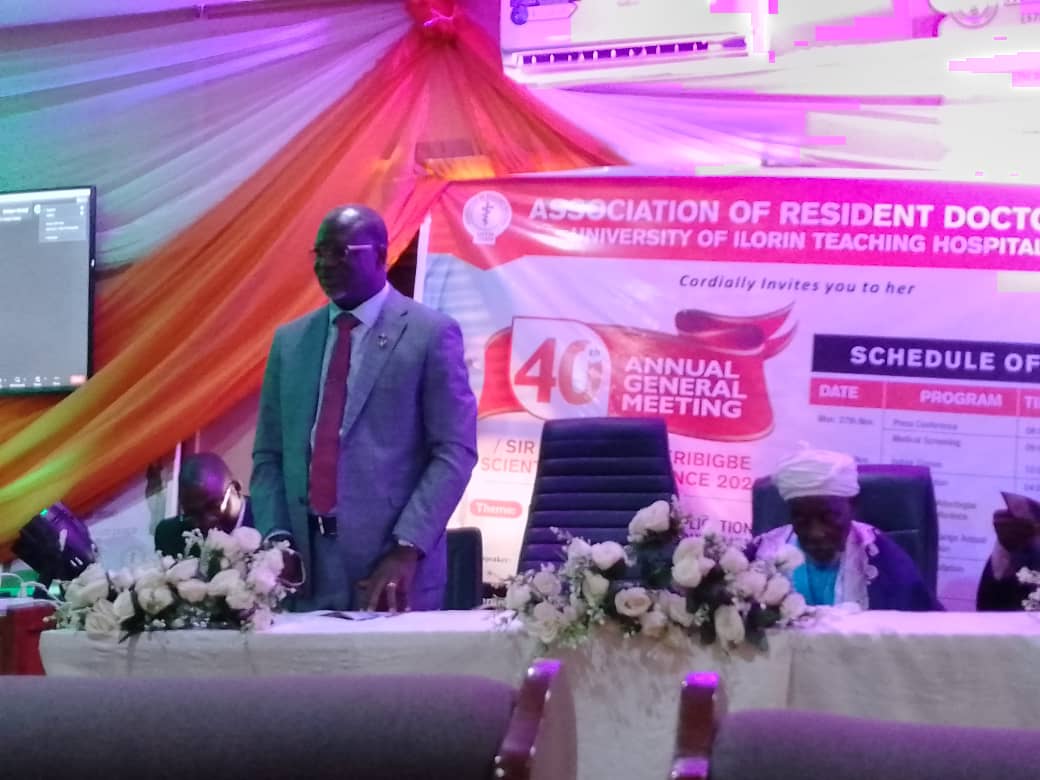Prof. Alfred Makanjuola, from the Department of Behavioral Sciences at the University of Ilorin Teaching Hospital (UITH), has advocated a multidisciplinary approach to managing bullying and burnout among medical practitioners.
Makanjuola made this assertion on Wednesday in Ilorin during his paper presentation at the 40th Annual General Meeting/Sir Aderibigbe Scientific Conference of the Association of Resident Doctors (ARD-UITH).
His presentation was entitled: “Multidimensional Implications of Bullying and Burnout among Medical Practitioners in Nigeria.”
He emphasized that workplace bullying and burnout are two common conditions faced, especially by medical students and practitioners during their residency.
The expert described bullying as the ongoing and deliberate misuse of power in relationships through repeated verbal, physical, and social behaviors that can cause social and psychological harm.
“It is repeatedly done over time to humiliate or undermine a group of workers,” he said.
According to him, those who face bullying are systematically exposed to humiliation, hostile, and aggressive behavior for at least once a week or six months.
He pointed out that doctors who are bullied perceive themselves as being at the receiving end.
Makanjuola said bullying includes belittling, insults, threats, physical abuse, gossip, and spreading rumors, among other behaviors.
He observed that bullying is so negative that it can precipitate burnout and stress among medical practitioners.
He also suggested that it can lead to feelings of energy depletion, low personal accomplishment, and increased mental distancing.
The consultant psychiatrist postulated that the consequences of bullying and burnout can result in psychological stress, low performance, and low confidence, among other issues.
He, therefore, advised the government and relevant stakeholders to evolve a comprehensive mental healthcare system.
“There is a need for training support and welfare for staff and a need for institutionalization of a mentoring system,” he said.
Makanjuola called for conflict de-escalation/resolution skills and mechanisms, as well as early identification of workplace bullying and burnout.
Similarly, in her presentation, Prof. Aishat Bolakale, a Consultant Paediatrician from the Department of Paediatrics, University of Ilorin, lamented the increase in the rate of assaults on healthcare workers in Nigeria.
Bolakale spoke on the sub-theme: “The Looming Increase in the Rate of Assault on Health Workers; The Role of Government.”
She identified factors such as rising workloads, demanding work pressure, and deteriorating interpersonal relationships as leading causes of assault on healthcare providers.
The paediatrician advised on practical approaches including education, awareness, identifying high-risk patients, and circulating security alert numbers as critical steps in stemming the tide of assaults on healthcare workers.
Speaking earlier, Dr. Mubarak Ijaiya, the President of ARD-UITH, stated that the conference’s themes are apt, as they address issues and challenges healthcare providers encounter during their daily clinical activities.
